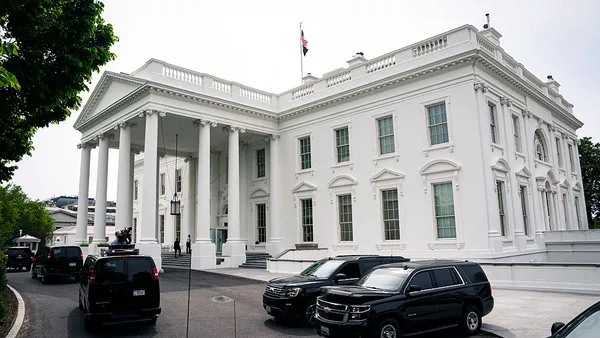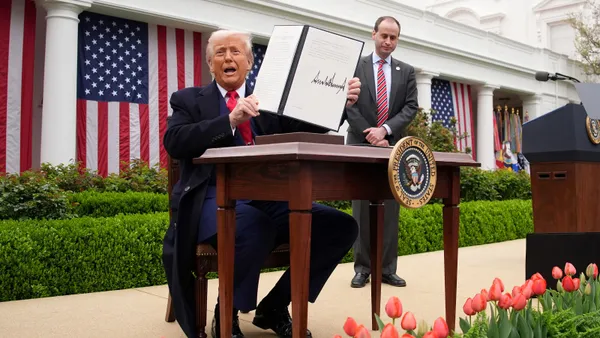Dive Brief:
- A former Metropolitan Transit Authority (MTA) construction project administrator has been ordered to pay a fine of $20,000 and serve a sentenced of 46 months in prison, followed by three years of supervised release, after pleading guilty to asking for and receiving bribes from MTA contractors, according to the U.S. Attorney's Office for the Eastern District of New York.
- From March 2009 to May 2015, prosecutors said Talib Lokhandwala received more than $152,000 in bribes from two subway contractors. Lokhandwala reportedly told the contractors he would help them win future projects and expedite their paperwork if they paid him the amounts he demanded.
- According to the court, Lokhandwala carried out years of bribery by depositing the bribes into shell bank accounts that his wife created, according to the U.S. Department of Transportation's Office of the Inspector General. The Inspector General's Office became involved because the projects affected were recipients of Federal Transit Administration funding.
Dive Insight:
According to a 2009 report from the Wisconsin Law Journal, incidents of fraud involving bribery and corruption are hard to detect because they don't typically leave a paper trail. These "off-books" transactions can be so elusive that it's difficult to project how much companies and public agencies are losing to corruption. Estimates suggest that the typical case costs a company approximately $375,000. Fraud hotlines could help employers root out the behavior, but detection could come down to eagle-eyed managers who notice a change in the pattern of employee behavior or other subtle clues.
Still, most public agencies and many private owners conduct project audits to make sure there are no irregularities in how contractors are carrying out their responsibilities. For example, on public projects, the owner could be put on alert if a contractor is bringing in out-of-town crews to do the work instead of using locals, according to attorney Michelle Schaap with Chiesa Shahinian & Giantomasi. This could prompt questions about the contractor's relationships with subcontractors and if there is a quid pro quo involved.
The end, however, is one of the most likely times during a construction project that fraud is likely to reveal itself, Frances Haynes, attorney at law firm Lewis Roca Rothgerber Christie’s Phoenix office told Construction Dive last month. And even then, she said, it usually takes disagreements about money or other issues to drive such problems to the surface.














